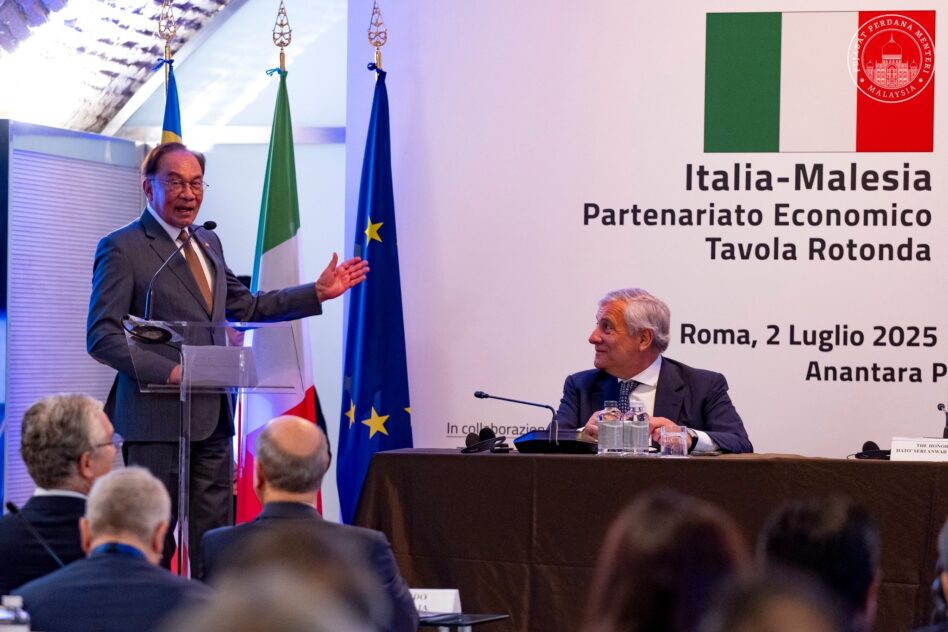By YS Chan
IN 1957, my parents were Chinese schoolteachers. We were then staying at the teachers’ quarters just behind the school, but they decided that I should study in an English school several miles away. At the end of August that year, Malaya was freed from being a British colony.
During enrolment, I was stumped when the teacher asked me in English, and she could not make me understand. As an innocent six-year-old, I was not bothered and had forgotten about it until decades later when it dawned on me that she was trying to state my religion in a form.
Today, Malaysian Chinese who are not Muslims or Christians are labelled as Buddhists in schools or Agama Budha in their identity cards (IC). This is despite the fact that the majority may not have set foot inside a Buddhist temple, much less studied or practise Buddhism.
Almost all Chinese temples in this country are Taoist featuring different gods and goddesses. It was up to those who built these temples to decide which main god or goddess or groups of them they want to worship, which vary according to their preferences or clans.
Despite the existence of early Chinese settlements in Melaka and several areas along the coasts of the archipelago in Southeast Asia, mass migration of Chinese to Malaysia occurred after the founding of British settlements in both Malaya and Borneo during the early 19th century.
It was only after the Japanese occupation during Second World War when Chinese of different clans, dialects or subdialects began to mix and intermarry more freely, resulting in many learning to speak in several dialects and were taught Mandarin in Chinese schools.
I speak, read, write and dream in English. While conducting training, I like to ask participants who consider themselves Buddhists to raise their hands. After asking which temples they have been to, I will then point out most of those named are not Buddhist temples, but Taoist.
It is a given that Muslims study the Quran, and Christians the Bible. But there is no standard religious book for Chinese. Only the devout may read about Taoism or Buddhism, but Buddhist texts are too deep for layman to understand without guidance from monks or nuns.
Confucianism is easier to comprehend and more meaningful, as cultural practices have been handed down for over 2,500 years. Even today, shrines are found in many Chinese homes. Those for ancestor worship is part of Confucianism and other shrines are Taoist, some Buddhist.
If Malaysian Chinese can be ignorant of their religion, it is no surprise when others regard them as Buddhists if they are not Muslims or Christians. Most Chinese do not practise a religion but have adopted customs, traditions and rituals by copying one another with little understanding.
Even in the UK, over 40% of British are non-religious while in China, it is 90%. However, it does not mean those who believe in religions are better than non-believers, as religions have been a main source of armed conflicts since time immemorial.
Apart from cultural values such as Confucianism, Malaysian Chinese also subscribe to universal values, such as peace, freedom, social progress, equal rights and human dignity, as enshrined in the United Nations’ Universal Declaration of Human Rights drafted in 1948.
While far from racist, I am interested to know the ethnicity of people I meet, especially those with mixed parentage as they have a generic advantage. When I asked my Indian friends their roots, they would simply say Indian because they were told they are and stated in their IC.
To me, those who originated from the Indian sub-continent are no less diverse than those in China. Although most Malaysian Indians are Tamils, they are just one of the hundreds of languages and thousands of dialects that had been spoken in India for centuries.
Likewise, many non-Malays do not realise that those categorised as Malays could also trace their ancestry to anywhere in the vast Malay Archipelago that covers 25,000 islands and islets, but mostly originate from within the peninsula including Pattani, and Sumatra and Java.
Interestingly, those who speak Malay, practise Malay customs and are Muslims are considered Malays, and many are Indian Muslims. The Peranakans were early settlers from China and had adopted the Malay language, dressing and food but are not Muslims and therefore not Malay.
For decades before independence, those living in the Federated and Unfederated Malay States have revered the Malay rulers, and the Sultans in turn have treated all residents as subjects. Even after independence, there was never any question on the status of royalty by any quarter except imaginary ones played up by selfish politicians.
Putting rhetoric aside, people in our country have lived harmoniously for centuries. Most of us go about daily without giving a thought on what has long been accepted as normal. A clear example is patronising food outlets. If the food sold is acceptable to our faith and within budget, the outlet chosen will be based on taste, cleanliness, courtesy and convenience, never on race.
In any case, there are good and bad people in any race or religion with the majority in between that can be led either way. As talk is cheap, it is more important to do what is good, as insisting on what is right is just trying to prove that others are wrong.
Wanting to be right had been the source of all quarrels within the family, in society and among countries. It is time to get smart by looking beyond the superficial and think long term. It may feel good to be right, but it is much better to be effective.
It is imperative that our religious studies and education systems teach us to be humane, compassionate and kind to counterbalance the hatred, exploitation and condemnation spewed by loudmouthed politicians who pretend to champion their community.
Sadly, they also indirectly promote corruption and dish out handouts to develop dependency on government aid. It is a sure-fire method to win votes from a populace unable to think for themselves or go beyond the superficial. – Feb 17, 2021
YS Chan is Asean Tourism Master Trainer for travel agencies, master trainer for Travel & Tours Enhancement Course and Mesra Malaysia (both programmes under Ministry of Tourism, Arts and Culture). He is also a tourism and transport industry consultant and writer.
The views expressed are solely of the author and do not necessarily reflect those of Focus Malaysia.
Photo credit: Shutterstock









